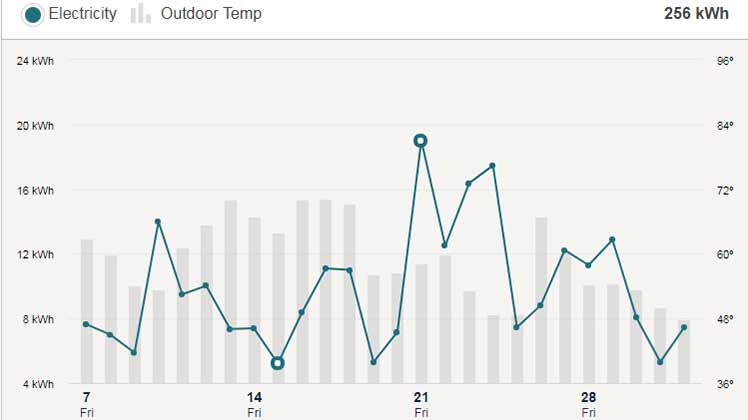Smart Meters

A Smart Meter helps you know your own power
Smart Meter Basics
Smart Meters are the standard for our customers. A Smart Meter uses electronic technology to measure your electricity use. Unlike older meters, however, a Smart Meter stores hourly readings electronically instead of using dials to show just the total use. Each day, the meter sends readings to us by a low power radio signal.
For more information, see our frequently asked questions below, or you can call 800.750.4000 for assistance.
Smart Meters offer convenience and savings for you
- Smart meters make bills more accurate because we receive usage information every day, reducing the need for estimated bills.
- Pinpointing power quality issues allows for faster diagnosis and response.
- Customers opening a new account or closing an existing account will see a faster turn around in making changes to their account.
- More and better information to help you save. With the Energy Manager service, you'll get a detailed account of your energy use on our website.
- Identify outages faster when big storms hit and verify when power has been restored.
- Usage Alerts that text, email and/or phone message you with information about your energy usage.
You have the option to opt-out of a smart meter and have a non-standard meter installed for an additional monthly fee.
If you decide to opt-out of a smart meter and have a non-standard meter at your premise, monthly charges are as follows:
| Monthly Fee Effective July 1, 2024 | |
| Non-standard Meter | $18.52* |
- An initial fee of $40.00 will be billed to you upon your opt-out enrollment.
- The non-standard meter currently used is the C1S Centron meter.
- Meter Reading will happen every other month, alternate months are estimates unless you choose to provide us with a meter reading.
- To request meter read cards for the alternate months, call us at 800.750.4000.
- For more information, click here.
Please note – you will not be able to participate in the smart meter benefits listed above if you have a non-standard meter.
*Income qualified customers may receive a discount.
Please read the Frequently Asked Questions below for additional information.
